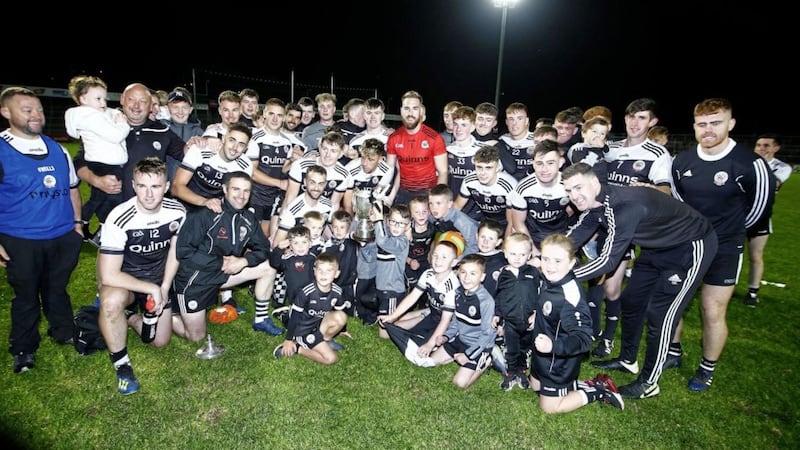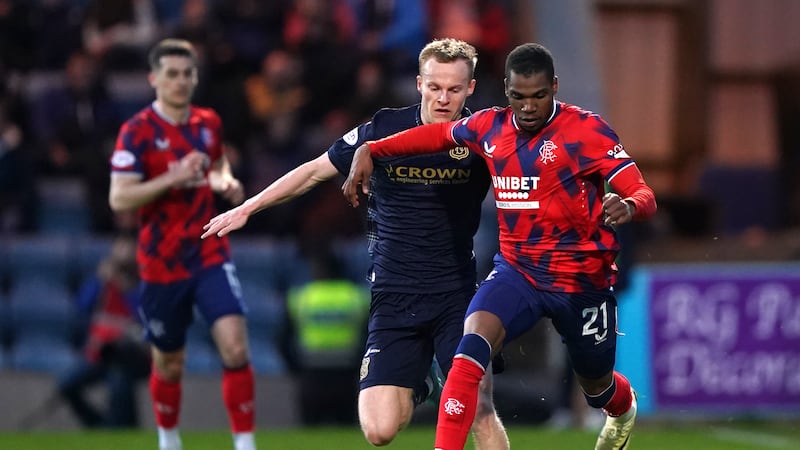I WATCHED a training game at the club on Wednesday night. The league resumes on Sunday and the lads played 11 v 11 the full length of the pitch.
There was intensity and energy to the game as the boys competed for places in the team for the opener.
Just a few years ago, Wednesday night’s game would have been a six-a-side at best and not because the manager (if there was one) had come up with some genius training concept - it was because there were only a dozen senior players at the club.
Back then we had a good crop of youngsters coming through but they were a still a few years away from senior level and the immediate future looked uncertain/bleak/dark/grim (take your pick).
There had been several retirements and a few lads had gone to England or the States to work. With no squad to work with, the manager stepped down and from that point on it seemed like we were cursed. It was one thing after another.
There was good news when we heard that a local girl had married a lad from Kerry.
“A big fella with a beard,” is what I was told and I immediately visualised ‘Bomber’ Liston trotting out onto the field to single-handedly save the day with 3-6 a game washed down with a dozen pints of Guinness that night.
But it turned out he was the only Kerry man with absolutely no interest in the GAA. I’m not certain he even knew who the Bomber was.
In desperation I called in favours from my friends in the media and they obliged by writing well-worded pieces in their publications inviting anyone interested in playing junior football to get in touch.
The next edition of the local paper had only hit the streets when my phone rang.
“I read the story that yous are looking for players?” said this fella.
“We are indeed,” I replied and we took it from there, chatting about his experience and how he might even know a few other lads who’d be interested in giving us a pull-out.
Just when I was thinking that we’d turned the corner and my phone was going to be hopping all day he added: “One other thing…”
“I might be on the older side for yous.”
“Why, what age are you?” I asked.
“I’m 43,” he said.
Ok, he wasn’t necessarily in the first flush of youth but he seemed like a good guy and, if the man wants to play, then come on ahead.
Not long after our conversation, he was involved in a car accident. He wasn’t badly hurt but it put an end to his football comeback.
Later that day I got a text from another fella. He was from Donegal working in Dublin but offered to come and help us out if we could get him a lift up.
That was the last contact I had from anyone interested in playing.
And so we pulled a few lads out of retirement and went gingerly into the season.
Before we even got going, one of our more reliable players did his cruciate in the only challenge match we had.
So the team hung by the thinnest of threads. There would have been half-a-dozen lads at training most nights and we had to forfeit the points and play some games with only 12 men on the field (including the manager) and not a sinner in the dugout.
What few supporters there were watched through their fingers.
The effort the lads put in was extraordinary but it was very hard to watch and we took some serious beatings – one club insisted on playing 15 against us and, with three extra men, of course they trounced us on our home pitch. It was a dark day but I suppose it wasn’t their fault that we were in such bad shape.
We limped through the season and managed to fulfil our fixtures but it was obvious that we couldn’t go on like that. A crisis meeting was held during which going out of business (at worst) and amalgamation (at best) were discussed.
Talented young lads didn’t want to hang around. It was a struggle to keep them on board and, in some cases, we couldn’t as vultures from other clubs swooped in to pick over our bones.
But this story has a happy ending.
It turned out that it only took a couple of motivated guys to get jobs close to home to make the difference. They dragged their mates in, their mates dragged their mates in and the young lads began to come of age and filter through to the senior team.
Suddenly there were a few more at training. The flat line began to spike upwards and the heart monitor began to beep again. The year before last something extraordinary happened, we won a game and, on Wednesday night, there were 22 fit, eager lads training and the club is looking forward to the season with optimism.
Now, that’s not saying we’re going to carry all before us but success is relative and if you’ve plumbed the depths you know that the first target in Gaelic Football is getting 15 men on the field.
Reaching that stage is a massive relief for a rural club and we’re in a position now where the future of the club is sustainable, even promising, again.
There are many clubs out there struggling but the lesson I learned is a simple one: never give up.
I DOUBT if I’d be writing in these pages at all if it were not for the support of the man who is retiring this weekend after 20 years’ of service as sports editor of The Irish News.
I first met Thomas Hawkins way back when I applied for a sub-editor position in the paper. Somehow he failed to spot my potential during the interview that day but thankfully he came to his senses afterwards and took me on as a freelancer before giving me a start on the staff in Donegall Street almost 15 years ago.
Since then I’ve been lucky to get to know Thomas as a friend and a mentor and I regard him as one of the most level-headed, unflappable people you could ever wish to meet. After Eamonn O’Hara retired I became a reporter in the paper and, with the constant support of the man we call ‘T’, I have had the privilege of travelling a decent chunk of the world doing a job most people would give their right leg to do.
There were issues and problems along the way of course but solutions were always found and somehow Thomas was able to keep the show on the road with a simple mantra of ‘onwards and upwards’.
“The only time we were beat was when we weren’t there Andre (he’s been referring to me in French since I covered the 2016 European Championships in France),” he would say after we’d navigated a way to cover a story when the way ahead seemed blocked.
A boxing devotee, a proud Irishman and a family man who loves life’s simple pleasures, Thomas deserves every moment of happiness in his retirement along with his wife Geraldine.
It won’t be the same without you T.








